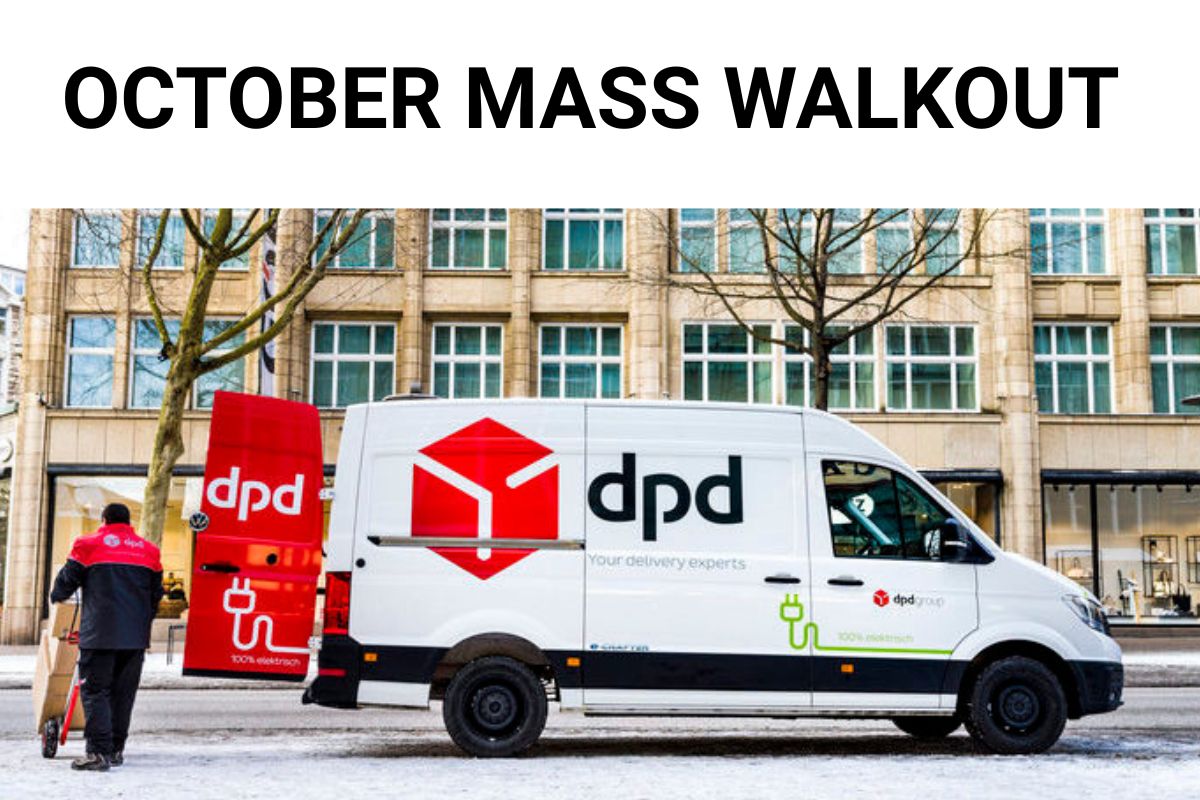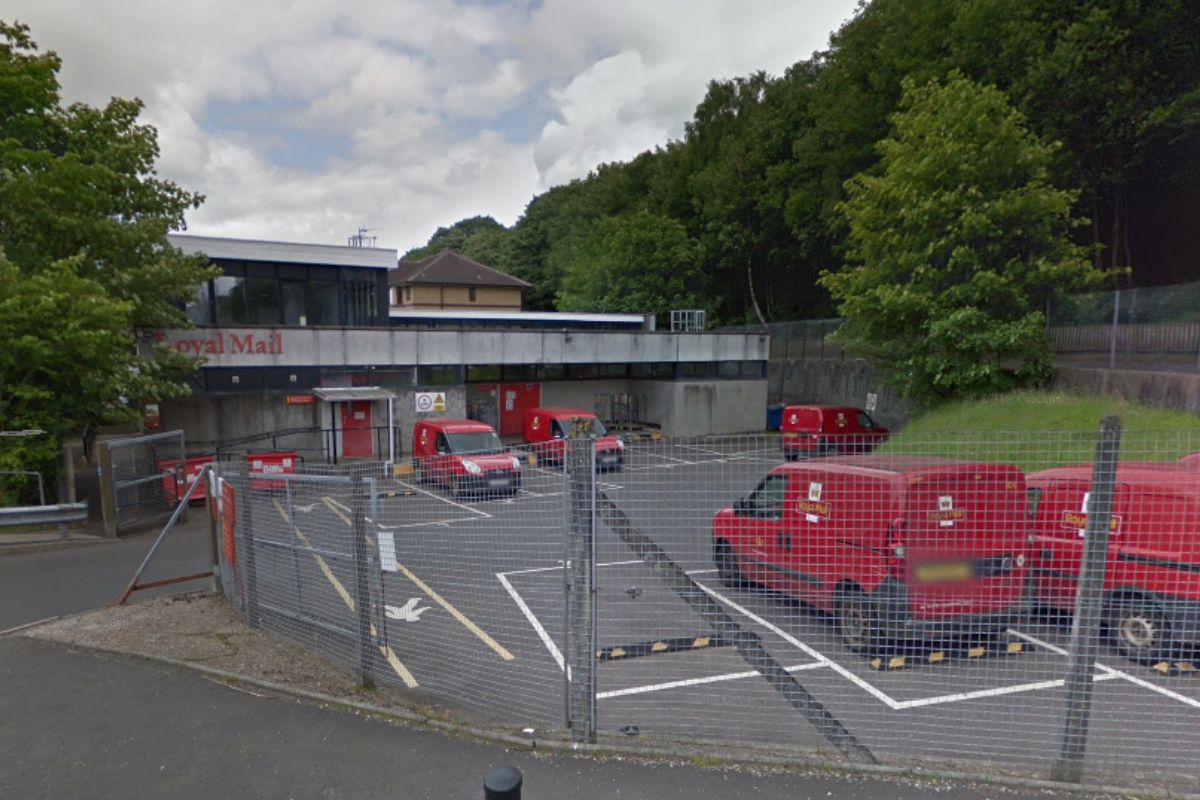DPD drivers are staging what appears to be the first mass walkout in the company’s history, with couriers across the UK downing tools between October 7-9th in protest over devastating pay cuts that could leave some drivers up to £80 per day worse off.
The unprecedented industrial action comes after DPD informed drivers that parcel rates would be slashed by as much as 65p per parcel – a move that sounds eerily familiar to anyone who remembers how Evri gutted their couriers’ earnings earlier this year while announcing robot delivery dogs as a convenient distraction.
The DPD Drivers’ Pay Cut That Broke the Camel’s Back
Sources have confirmed that DPD’s latest rate restructuring will see couriers losing 65p per parcel on certain deliveries, representing a catastrophic hit to daily earnings for drivers who already operate on razor-thin margins after fuel, vehicle maintenance, and insurance costs.
For a driver completing a typical 120-parcel route, the mathematics are brutal – that’s potentially £78 stripped from their daily earnings overnight.
DPD’s justification for the cuts follows a playbook that’s becoming depressingly familiar in the courier industry: claim that increased parcel volumes will offset the lower per-parcel rates, conveniently ignoring the reality that volume increases never materialise quickly enough or substantially enough to bridge the gap.
It’s the same corporate sleight of hand Evri used when they implemented their “Small Packet” banding changes that effectively cut courier pay by 8% while publicly insisting they were “supporting” their workforce.
DPD Scraps £500 Christmas Bonus in Double Blow to Drivers
As if slashing per-parcel rates wasn’t enough of a kick in the teeth, DPD has also quietly axed the £500 Christmas bonus that drivers had come to rely on as part of their annual earnings.
The timing is particularly cruel.
Christmas represents the busiest and most physically demanding period for courier drivers, who work brutal hours through November and December to handle the seasonal surge in parcel volumes.
That £500 bonus wasn’t just a nice gesture. For many drivers, it was factored into their household budgets, covering everything from their own family’s Christmas to essential vehicle maintenance costs accumulated during the peak season.
Removing the bonus while simultaneously cutting daily earnings shows exactly how DPD views the people who make their business function.
Drivers are now facing a double financial hit: earning less per parcel throughout the year AND losing the seasonal payment they’d planned around.
For those already operating on tight margins, this represents a devastating one-two punch that makes the October 7-9th walkout feel less like protest and more like basic financial survival.
When the Maths Doesn’t Add Up
The problem with DPD’s volume-offset argument for cutting parcel rates is simple: it’s rubbish.
Even if parcel volumes did increase – and there’s no guarantee they will – drivers would need to handle significantly more parcels to make up the shortfall, which means longer hours, more fuel costs, increased vehicle wear, and greater physical strain for the same or potentially less money.
This isn’t wage stagnation – it’s an active pay cut dressed up as business optimisation.
For self-employed couriers who’ve built their lives around expected income levels, discovering they’ll be earning £80 less per day isn’t a minor adjustment – it’s potentially the difference between viability and bankruptcy.
The First Mass Walkout in DPD’s History
What makes this week’s action particularly significant is that mass walkouts simply don’t happen in the courier industry.
Drivers are typically self-employed contractors rather than traditional employees, making coordinated industrial action both legally complex and personally risky. The fact that DPD couriers have organised a three-day stoppage suggests the anger runs deeper than usual labour disputes.
Unlike traditional strikes where unions negotiate on behalf of employees, these drivers are risking their contracts, their livelihoods, and their future relationship with DPD by simply refusing to work.
That they’re willing to take this risk speaks volumes about how seriously they’re taking the proposed pay cuts.
Another Week, Another Courier Company Squeezing Drivers
DPD’s rate cuts represent the latest chapter in the courier industry’s systematic exploitation of the self-employed drivers who actually make deliveries possible.
While companies celebrate record parcel volumes and negotiate lucrative contracts with major retailers, the people doing the physical work of getting those parcels to customers face relentless downward pressure on their earnings.
Evri cut rates and announced robot dogs. Royal Mail hiked prices while service standards collapsed under foreign ownership. And now DPD is slashing per-parcel rates while expecting drivers to absorb the financial hit.
The pattern is becoming impossible to ignore – courier companies treat their drivers as disposable cost centres rather than the essential workers who make their entire business model function.
What This Means for Your Deliveries
If you’re expecting a DPD delivery between October 7-9th, there’s a very real chance it won’t arrive.
While DPD will no doubt scramble to maintain service levels using whatever drivers don’t participate in the walkout, the reality is that losing even a significant minority of couriers for three days will create backlogs that take weeks to clear.
Customers should prepare for delays, missed delivery windows, and the usual corporate excuses about “unforeseen circumstances” – when the circumstances were entirely foreseeable the moment DPD decided to slash driver pay.
For the drivers themselves, the walkout represents a last-ditch attempt to force DPD to reconsider cuts that would make their work financially unviable. Whether the company will actually listen remains to be seen.
Want to know more about delivery companies and how they’re performing?
Check out our courier information section or browse our retailer guides to see which delivery companies your favourite shops are using.




